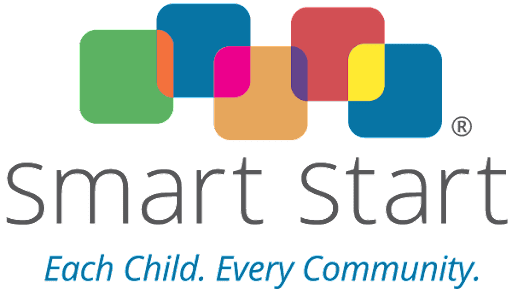 As part of our mission to build a coalition that prioritizes housing advocacy across the state, NCHC works to build relationships with advocates across a variety of sectors. This month we are highlighting the work of North Carolina Partnership for Children (NCPC), also known as Smart Start.
As part of our mission to build a coalition that prioritizes housing advocacy across the state, NCHC works to build relationships with advocates across a variety of sectors. This month we are highlighting the work of North Carolina Partnership for Children (NCPC), also known as Smart Start.
Founded in 1993, Smart Start was created to address the problem of children coming to school unprepared to learn. Policymakers recognized that progress would require tapping into the same innovation that inspired advances in the private sector and established Smart Start as a public/private partnership. Independent, private organizations work in all 100 North Carolina counties through NCPC and 75 Local Partnerships. The success of Smart Start comes from giving communities local control to determine the best approach to achieving desired outcomes.
Smart Start’s vision is for each child to reach their potential and be prepared for school and life success, in North Carolina and the global community. This vision is realized through their mission to advance a high quality, comprehensive, accountable early childhood system that benefits each child in North Carolina.
Why Smart Start works…
- A strong economy is built with NC businesses. When parents don’t have affordable child care or family support resources, they are often forced to miss work or are less productive while working. This affects business negatively – and it happens more often than it should.
- Our smallest learners are our smartest investment. Smart policymakers know that investing in North Carolina’s youngest children and families now will save the state money in the future.
This year, NCHC is pleased to welcome Smart Start into our state cohort for the Opportunity Starts at Home campaign. This cohort, which began in 2022 through a partnership with NC Child, focuses on deepening understanding of housing policy and developing new, stronger relationships to inspire housing champions to action across several sectors. With a lens of intersectional advocacy, we aim to integrate housing policy ideas into the frameworks of cross-sector advocates in order to strengthen their own work within communities and grow the housing movement in North Carolina.
Mebane Boyd shares that she is the Resilient Communities Officer for Smart Start and leads the NC Healthy and Resilient Communities Initiative. Her role involves learning from and co-creating resources to increase the capacity of local ACEs and Resilience multi-sector coalitions as they work to address and prevent trauma in their communities. Many of these coalitions began by focusing on building individual resiliency skills through training about our bodies’ response to stress and trauma, and tools on how to self-regulate. As the work across the state has progressed, however, the focus has turned more towards creating communities where people don’t have to be so resilient.
Issues like the lack of affordable housing, quality childcare, or upwardly mobile jobs that can support a family can raise the stress level of families and caregivers resulting in more ACEs (Adverse Childhood Experiences) or exacerbating existing trauma.
“Partnering with the North Carolina Housing Coalition to share data about the housing crisis and educate our coalitions about things that can be done to improve the housing systems is a perfect example of how we can begin to make our communities places where families and children will feel less stress and will be more likely to thrive,” Boyd said.
We must address not only the original ACEs of Adverse Childhood Experiences but also the other three realms of ACEs, (Adverse Community Environments, Adverse Climate Events and Atrocious Cultural Experiences – see picture below.) Among these is safe and secure housing.
Changing our systems – whether it’s housing, schools, transportation or healthcare – has everything to do with the success of our youngest community members.
Stable, safe housing IS child welfare. Stable, safe housing IS educational attainment. Stable, safe housing IS healthy North Carolinians.

As our partnership grows with Smart Start, we hope to provide housing advocacy resources to support their work, as well as adopt some of their approaches to advocacy that center young children and families.
To learn more about Smart Start, please visit smartstart.org.
If you are interested in becoming a Coalition partner or engaging more with us, contact our Director of Strategic Partnerships at aspinner@nchousing.org.
by Adrienne Spinner and Mebane Boyd








